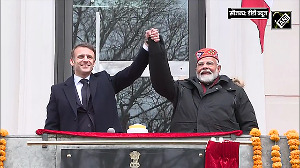The Reserve Bank of India Governor Duvvuri Subbarao said on Thursday central banks need to be independent to make monetary policy decisions during a speech at a memorial event for the country's first Indian central bank governor. The remarks come at a time when Subbarao is under immense pressure from the government to cut interest rates.
The remarks come at a time when Subbarao is under immense pressure from the government to cut interest rates.
However, the Indian central bank has stood its ground, keeping rates on hold since April despite the government pressure, as the RBI governor has repeatedly reiterated his concerns about inflationary pressures.
Subbarao only changed his stance in October, when he announced a "reasonable likelihood" of monetary policy easing in the January-March quarter as inflationary pressures are expected to ease.
"The issue of monetary policy independence has acquired greater potency following the expansion of the mandates of central banks and their more explicit pursuit of real sector targets such as growth and unemployment," Subbarao said in a speech on Thursday.
The governor was speaking at a memorial event for C.D. Deshmukh, the RBI's first Indian governor.
Subbarao also cited Japan as an example of how a government can put at risk the independence of a central bank.
Recently-elected
Abe has also threatened to change the law that guarantees the central bank's independence if the BOJ does not pursue more aggressive easing and has called for the inflation target to be doubled to 2 percent.
"In recent weeks, we have all seen this issue of central bank independence play out in Japan, with political pressures on the Bank of Japan to adopt a higher inflation target so as to create more room for growth stimulus," Subbarao said.
"The example of Japan is recent and high profile, but by no means an exception."
Subbarao also reiterated on Thursday that the central banks alone cannot solve all problems, and urged for better fiscal policies to inspire trust and confidence in investors.
India's growth is set to fall to a decade low of around 5.5-5.7 percent in 2012-13, and the government is under pressure to contain its fiscal deficit at 5.3 percent to avert potential downgrades to the country's sovereign ratings.
"Central banks cannot fix economies by themselves. Governments need to act too from the fiscal side, and monetary and fiscal policies have to act in harmony," he said.











 © 2025
© 2025